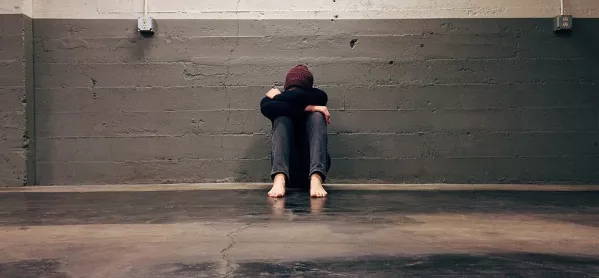In an education system that is obsessed with measuring what so often cannot be measured, I worry that while we may be teaching children to pass tests, we are not necessarily teaching them to cope with the demands of modern life.
In his book Lost Connections: uncovering the real causes of depression - and the unexpected solutions, Johann Hari, writes: “All humans have certain basic psychological needs. We need to feel we belong. We need to feel valued. We need to feel we’re good at something. We need to feel we have a secure future. And there is growing evidence that our culture isn’t meeting those psychological needs for many - perhaps most - people.”
I would suggest that our education system is where this starts. Our schools are not able to meet the psychological and mental health needs of young people and instead seek to micro-manage every aspect of children’s lives to satisfy the ludicrous demands of big data in the shape of league tables and accountability.
Asking serious questions about mental health
And as our society becomes increasingly crippled by an epidemic of mental health and pharmacies dish out anti-depressants like candy, government and policymakers need to be asking themselves some serious questions.
Rather than focusing on the symptoms, we need to address the causes. Maybe the data we are seeking is not boosting productivity at all, but crippling it. And the stakes are high - vast numbers of us, children and adults - are losing our minds.
Any education worthy of the name needs to embrace the spiritual, physical, intellectual, emotional, moral and social development of our children and young people.
Rather than teaching young people to pass assessments, we should be helping them to be wise: to see through the clamour of modern life and to exercise control over their own minds.
‘Drastic change is needed’
So, what do we do? Can wisdom even be taught? The answer is probably not directly. But we can create an environment that encourages wisdom to flourish. For this to happen, drastic change is needed. One thing is certain - we need to rise above Punch and Judy party politics and unite against the challenges that our education system faces.
Before writing this blog, I looked out of my window at the massive oak tree that stands outside my house. Growing at an almost impossible angle of practically forty-five degrees, it continues to resolutely weather whatever storms nature chooses to throw at it. The tree seems to stand in splendid isolation, when in fact, below the soil, the roots of numerous other trees intermingle, exchanging minerals and nutrients in a perfect symbiotic relationship of mutual interdependence.
To me, that oak tree is an endless source of inspiration. It embodies that clichéd ‘resilience’ beloved of politicians; the irony is that this tree is so resilient precisely because it is allowed to just ‘be’, without perpetually being measured.
James Glasse is a tutor and education consultant





